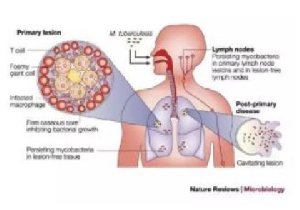Health News of Thursday, 25 March 2021
Source: GNA
UNAIDS recommends key activities to end TB
The Joint United Nations Programme on HIV/AIDS (UNAIDS) has recommended eight key activities for Ghana to implement to end tuberculosis (TB), especially among people living with HIV in the country.
They include the need for the country “to deliver integrated person-centred care in a one-stop-shop and not disease-specific clinics” and a “Test and treat all people with TB or possible TB for HIV and vice versa.”
Also “trace all family and household contacts (especially young children) of people on TB treatment, people on HIV treatment and people with COVID-19 and test them for TB, HIV and COVID-19.”
There must also be community screening for HIV, TB and COVID-19 among high-risk populations (urban slums, malnourished children, mining communities, diabetes patients).
This was contained in a statement issued in Accra by UNAIDS to commemorate World Tuberculosis Day (WTD), which is observed on March 24, every year.
The rest of the recommendations included empowering health care workers to screen all clinic attendants for COVID-19, TB, and HIV, provide TB preventive treatment to all people living with HIV, who do not have signs of TB disease, children and adult contacts of TB patients, improve TB screening with digital chest X-ray and new innovative diagnostic tools such as GeneXpert, LF-LAM, and TB LAMP, and improve monitoring and treatment support to people with TB and HIV using digital tools and mobile applications.”
“The Clock is Ticking” is the theme for this year’s event and is to remind the world about the slow progress made in acting on commitments made to end TB.
The statement said, “Regrettably, the COVID-19 pandemic has put the global promise to end TB by 2030 at risk and as well as efforts to ensure equitable access to TB testing, treatment and prevention.
The statement said in 2019, an estimated 44,000 people developed TB in Ghana, of whom 9,200 occurred among people living with HIV.
In the same year, an estimated 10,000 HIV negative people died of TB and an additional 5,000 people living with HIV also died of TB.
“Despite these numbers only 14,691 people with TB were diagnosed, started on treatment, and notified to the National TB Programme. This suggests that only 34 per cent of the people with TB in Ghana were able to access treatment, a worrying figure,” it said.
The statement said with the emergence of COVID-19 in 2020, there was significant loss of progress towards achieving the End TB targets by 2022 set by the United Nations.
The Ghana National TB Programme estimates about 25 per cent less TB cases diagnosed, enrolled in treatment, and notified due to COVID 19.
“This sets back TB control efforts in Ghana by about 10 years.”
It said “In this era of COVID-19, it is important to test all people reporting with respiratory symptoms for both TB, COVID-19 and HIV. In Ghana, HIV prevalence is high among people with TB and people being tested for possible TB.”
The statement quoted Ms Angela Trenton-Mbonde, UNAIDS Country Director as saying “All people living with HIV, who are on HIV treatment, should be screened for TB and if positive, they should be tested and treated for TB, if they are negative, they must be encouraged to take TB preventive treatment.
Time is not on our side as the clock is ticking and waits for no one. We urgently need joint action to end TB and end AIDS by 2030.”
Entertainment










